[/caption]
As 2011 is drawing to a close, the festive season is here and many of us are winding down and looking forward to the holidays. But this is a great time to look ahead to 2012 and pencil into our calendar and diaries the top astronomical events we don’t want to miss next year.
2012 is going to be a great year for astronomy observing, with some rare and exciting things taking place and a good outlook with some of the regular annual events.
So what top wonders should we expect to see and what will 2012 bring?
Conjunction of Venus and Jupiter
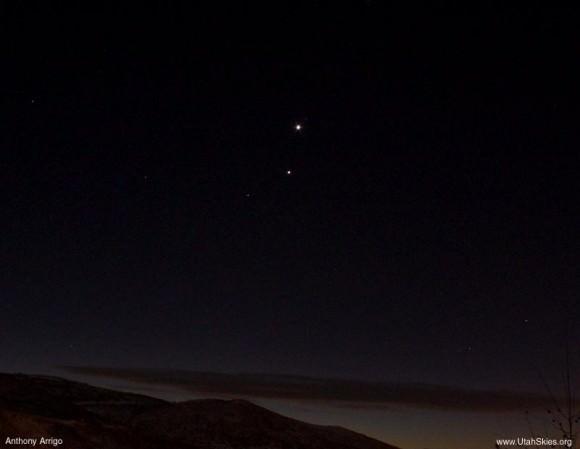
On March 15th the Planets Venus and Jupiter will be within 3 degrees and very close to each other in the early evening sky. This will be quite a spectacle as both planets are very bright (Venus being the brightest) and the pair will burn brightly together like a pair of alien eyes watching us after the Sun sets.
This conjunction (where planets group close together as seen from Earth) will be a fantastic visual and photographic opportunity, as it’s not often you get the brightest Planets in our Solar System so close together.
Transit of Venus
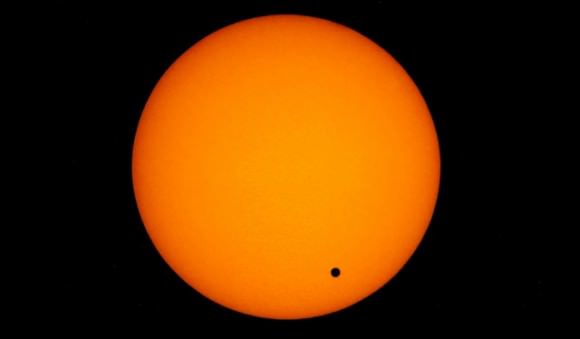
For many, the transit of Venus is the year’s most anticipated astronomical event and it takes place on June 5th – 6th. The Planet Venus will pass between the Earth and the Sun and you will see Venus (a small black circle) slowly move across, or “transit” the disc of the Sun.
Transits of Venus are very rare and only a few have been witnessed since the dawn of the telescope. Be sure not to miss this very rare event as the next one isn’t visible for over another 100 years from now in 2117 and the next after that is in 2125.

The full transit of Venus in 2012 will be visible in North America, the northwest part of South America, Western Pacific, North East Asia, Japan, Australia and New Zealand. Other parts of the world will see a partial transit such as observers in the UK, who will only be able to see the last part of the transit as the Sun rises.
First contact will be at 22:09 UT and final contact will be at 04:49 UT
Take note! You have to use the right equipment for viewing the Sun, such as eclipse glasses, solar filters, or projection through a telescope. Never ever look directly at the Sun and never look at it through a normal telescope or binoculars – You will be permanently blinded! The transit of Venus will be a very popular event, so contact your local astronomy group and see if they are holding an event to celebrate this rare occasion.
Meteor Showers
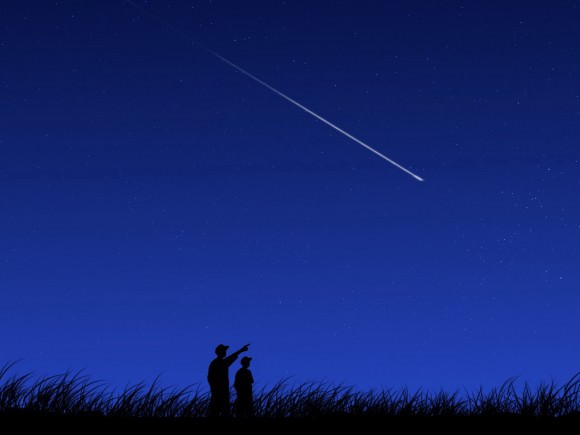
2011 was a poor year for meteor showers due to the presence of a largely illuminated Moon on all of the major showers; this prevented all but the brightest meteors being seen.
In contrast 2012 brings a welcome respite from the glare of the Moon as it gives little or no interference with this year’s major showers. The only other issue left to contend with is the weather, but if you have clear skies on the evenings of these celestial fireworks, you are in for a treat.
- The Quadrantid Meteor Shower peak is narrow and just before dawn on January 4th this shower is expected to have a peak rate (ZHR) of around 80 meteors per hour.
- The Perseid Meteor Shower peak is fairly broad with activity increasing on the evenings of the August 9th and 10th with the showers peak on the morning of the 12th. Perseids are the most popular meteor shower of the year as it tends to be warm and the shower has very bright meteors and fireballs, with rates of 100+ an hour at its peak.
- The Geminid Meteor Shower is probably the best meteor shower of the year with high rates of slow bright meteors. The peak is very broad and rates of 100+ meteors per hour can be seen. The best time to look out for Geminids is on the evenings of the 12th to 14th December, but they can be seen much earlier or later than the peak.
If you want to find out more and enjoy the meteor showers of 2012, why not join in with a meteorwatch and visit meteorwatch.org
Jupiter and the Moon
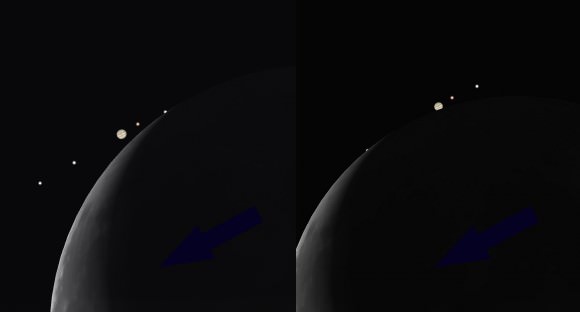
European observers are in for a very rare treat as the Moon briefly hides the planet Jupiter on the morning of July 15th. This “lunar occultation” can be seen from southern England and parts of Europe at approximately 1:50am UT (dependant on location) and the planet re-emerges from the dark lunar limb at approximately 3:10am UT.
This is a great chance to watch this rare and bright event, and it will also be a fantastic imaging opportunity.
Annular Eclipse
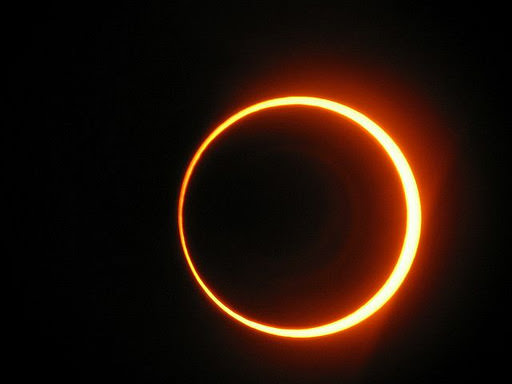
American observers will have treat on May 20th with an annular eclipse of the Sun. The eclipse will be visible from many western US states and a partial eclipse visible from most of North America.
Because the Moon’s orbit is not a perfect circle and is slightly elliptical, it moves closer and further away from us slightly in its orbit by 13% and on July 15th it is at its furthest point away from the Earth as it passes in front of the Sun.
Normally the Moon covers the entire disc of the Sun and creates a total solar eclipse, but because the Moon is at its furthest point in its orbit on the 15th, we get an annular eclipse, where we can still see a ring of bright light around the Sun, but we don’t get totality.
The eclipse starts roughly at 6:20pm local time for the Western US states and lasts for four and a half minutes.

As mentioned earlier; never, ever look at the Sun without proper protection such as eclipse glasses or filters for equipment! This can damage your eyes and permanently blind you. This is the same for cameras; the sensitive chips inside can be damaged.
The World Not Ending
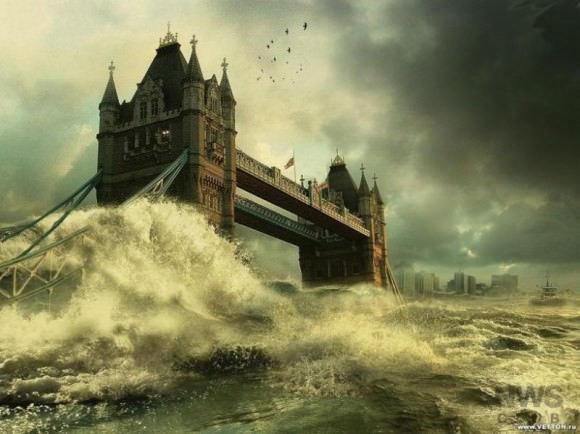
Finally we get to December 21st, in which astronomy-minded folks will celebrate the solstice. But in case you haven’t heard, some have prophesied the end of the world, saying the Mayan calendar ends. This has been the subject of much discussion, comedy and media coverage, and it has even been made into films.
Will the Antichrist press the red button and will there be the Rapture? Will the Earth reverse its magnetic poles, or will we get wiped out by a solar flare, rogue comet or asteroid?
Nope, probably not. You can read our entire series which explains why this whole 2012 end-of-the-world craze is complete hokum.
All I know is 2012 is going to be a great year for astronomy with some very interesting, rare events taking place, with many more regular events to see, as well.
I’m sure it’s not going to end.


In Warszawa/Poland it seems that the Jupiter occultation will be much deeper.
You missed the Total Solar Eclipse in November 2012 for Australia.
too bad the eclipse and occultation won’t be visible from eastern U.S.
OMZ(od)! I LMAO literally (‘sitting’ now in a pool of blood and other) at the COMPLETELY unexpected final ‘event’… Caught me soo off guard, I choked. Nice job!
Feb. 9th: Venus-Uranus conjunction, visible with binoculars, although Uranus might be lost in Venus’ overwhelming glare.
Aug. 21: Mars-Saturn-crescent Moon smiley face 🙂
Love these two panels, which might be titled: #1 “A Family Night-out Under the Stars”; and: #5 “A Father’s Evening Lesson”.
The Venus transit is the most rare but there was one 8 years ago. If you missed the 2004 transit you must see the 2012. The next one is only at 2117! See here http://www.thevenustransit.com